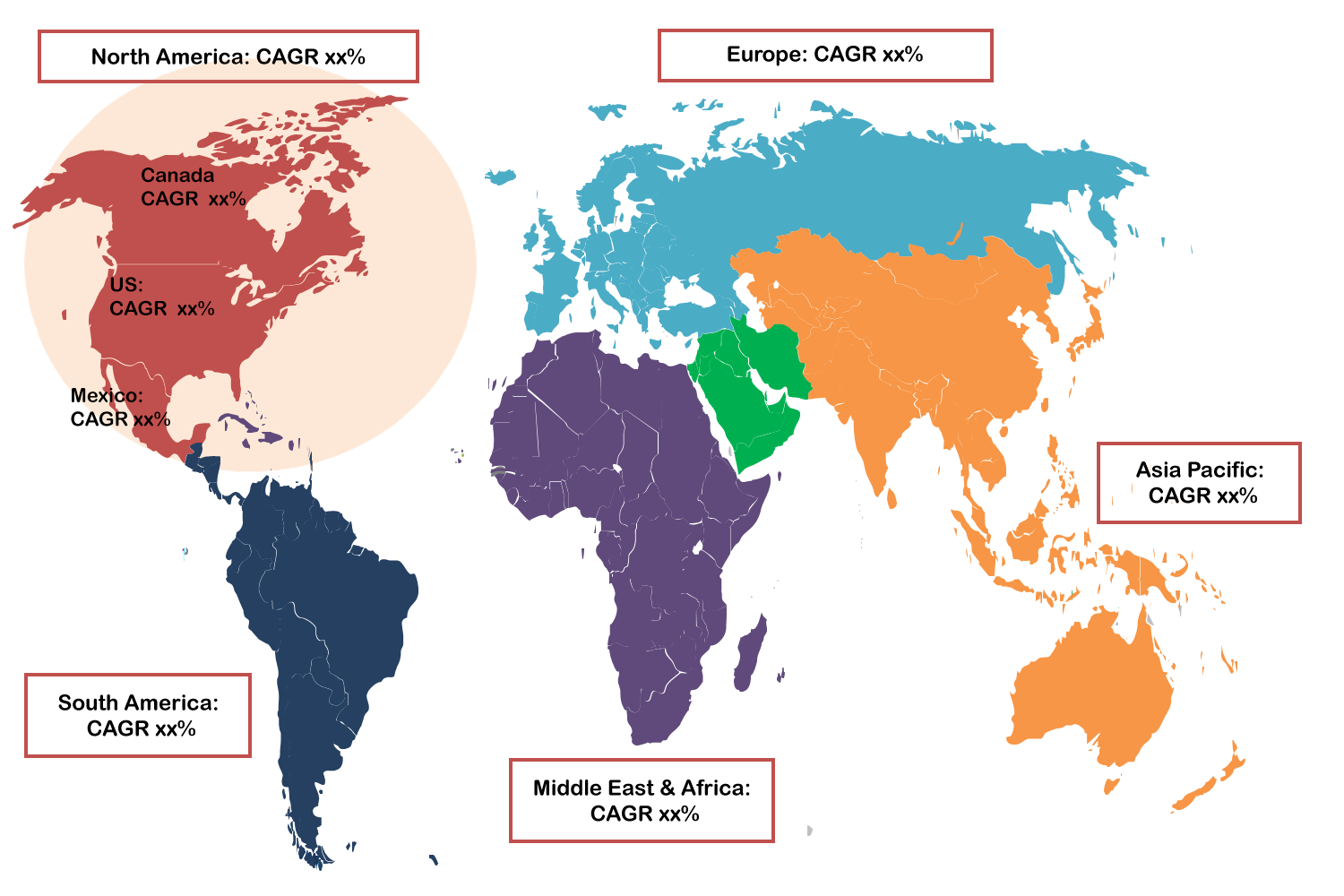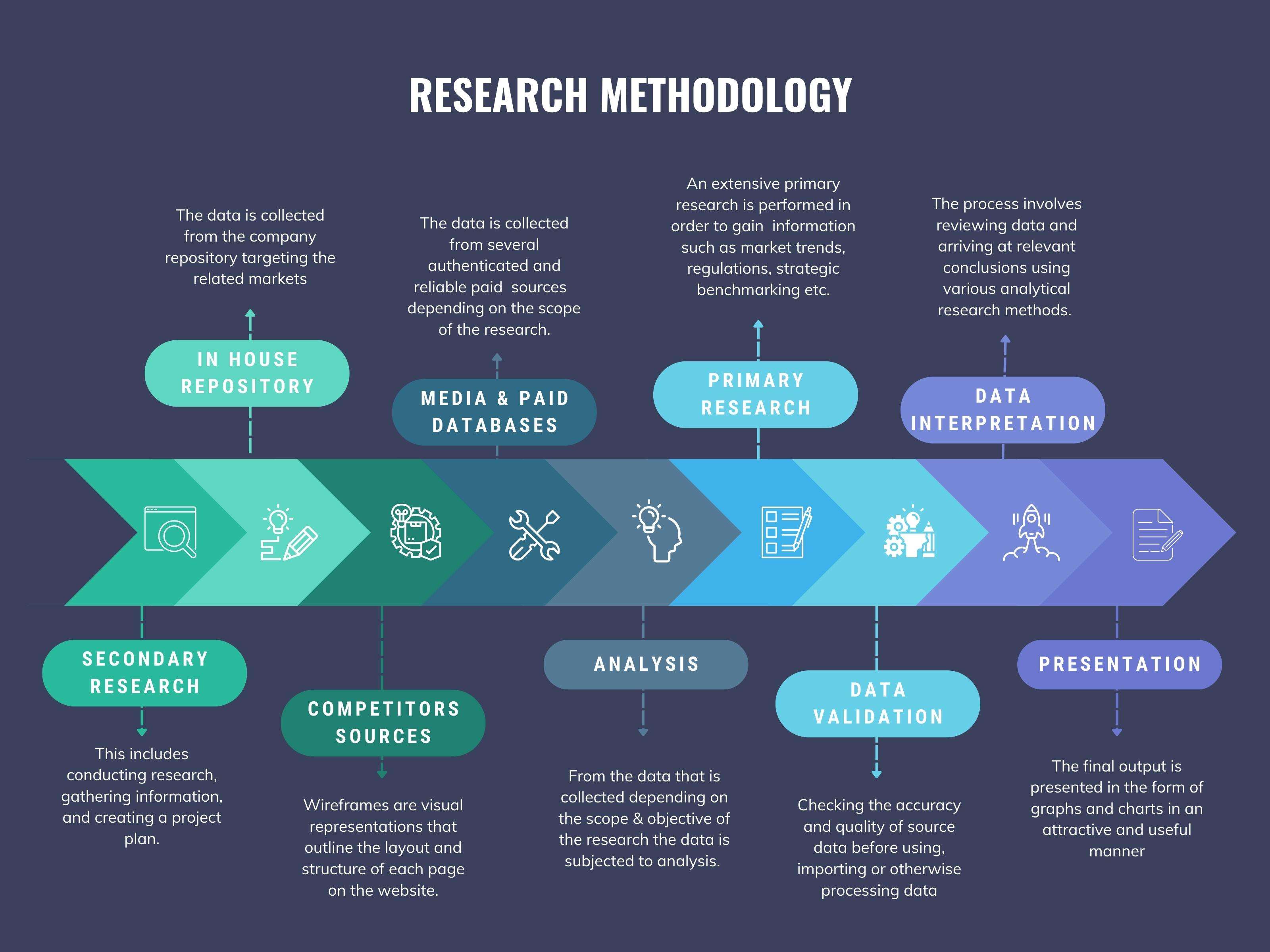
Coal Fired Power Generation Market
Coal Fired Power Generation Market Forecasts to 2032 – Global Analysis By Component (Boilers, Turbines, Generators, Air Quality Control Systems and Other Components), Plant Type (Base Load Plants and Peak Load Plants), Fuel Type, Capacity, Technology, Application and By Geography

According to Stratistics MRC, the Global Coal Fired Power Generation Market is accounted for $108.5 billion in 2025 and is expected to reach $152.8 billion by 2032 growing at a CAGR of 5% during the forecast period. The process of burning coal in a thermal power plant to generate electricity is known as coal-fired power generating. This process produces high-pressure steam by heating water in a boiler by burning coal in a furnace. A turbine that is attached to an electric generator is powered by this steam, which transforms thermal energy into electrical energy. Because coal is plentiful and reasonably priced, coal-fired power plants are frequently employed, particularly in developing nations. Nonetheless, they are a major source of greenhouse gas emissions and air pollution, which makes them a hot topic in international energy and environmental discussions.
Market Dynamics:
Driver:
High electricity demand in emerging economies
The demand for a reliable, extensive power supply is heightened by the fast urbanisation and industrialisation of the world. A dependable and affordable way to satisfy this growing need is through coal-fired power facilities. Because of its widespread availability and well-established infrastructure, coal is still used in many developing countries. Coal's place in the power mix is further supported by the limited availability of alternative energy sources. Investments in coal-fired facilities are therefore still increasing in these areas.
Restraint:
Stringent environmental regulations and emissions norms
Scrubbers and carbon capture systems are expensive pollution control technology that power plants must purchase in order to meet requirements. Coal-based energy's economics and appeal are diminished by these additional costs. In order to further discourage the use of coal, governments sometimes impose fines or fees on excessive emissions. Stricter regulations also restrict the approval of new coal-fired plants, which slows market expansion. Coal is struggling to stay a viable energy source as cleaner alternatives gain popularity.
Opportunity:
Technological advancements in carbon capture and storage (CCS)
Coal power plants can now be made environmentally feasible by more effectively capturing CO₂ from flue gases thanks to new CCS techniques. These developments enable factories to comply with strict emission standards without having to halt operations. Improved CCS integration raises overall plant efficiency and lowers operating costs. Additionally, governments are providing financial and policy incentives to assist the development of CCS. Therefore, in an energy landscape that is concerned with carbon, CCS technology is prolonging the operating life and significance of coal-fired power stations.
Threat:
Rising competition from renewable energy sources
Alternatives like solar, wind, and hydroelectric power are becoming more affordable and cleaner. Carbon taxes, regulations, and subsidies are some of the ways that governments around the world are encouraging renewable energy. Coal plants become less economically viable as a result of this change in the demand for coal-based energy. The dependability of renewable energy sources is further reinforced by technological developments in energy storage. As a result, market expansion is impacted by the ongoing drop in investment in coal infrastructure.
Covid-19 Impact
The COVID-19 pandemic significantly disrupted the coal-fired power generation market, leading to reduced electricity demand due to industrial slowdowns and nationwide lockdowns. Many power plants faced operational constraints, labor shortages, and logistical challenges, resulting in lower coal consumption. Investment in coal-based infrastructure declined as countries prioritized renewable energy projects in recovery plans. Additionally, the volatility in global supply chains impacted coal transportation and availability. The pandemic also accelerated the retirement of older, less efficient coal plants, especially in regions shifting toward cleaner energy alternatives. This created long-term implications for the market.
The generators segment is expected to be the largest during the forecast period
The generators segment is expected to account for the largest market share during the forecast period, due to ensured consistent and efficient electricity output from coal combustion. Advanced generator technologies enhance overall plant efficiency, reducing operational costs and increasing energy reliability. High-capacity generators are essential to meet rising power demands, especially in industrial and urban areas. Continuous innovations in generator design contribute to improved thermal efficiency and lower emissions. As developing nations expand their energy infrastructure, demand for robust coal-fired generators continues to drive market growth.
The residential segment is expected to have the highest CAGR during the forecast period
Over the forecast period, the residential segment is predicted to witness the highest growth rate, due to the continuous rise in electricity demand from growing urban populations. Many developing countries still rely heavily on coal-based electricity to meet household energy needs, especially in areas with limited access to renewable sources. The affordability and established infrastructure of coal-fired power make it a preferred choice for residential consumption. Additionally, seasonal peaks in residential heating and cooling further drive consistent coal power usage. This steady demand helps sustain coal-fired plants and supports market growth.
Region with largest share:
During the forecast period, the Asia Pacific region is expected to hold the largest market share due to its high dependency on coal for electricity, particularly in China, India, and Indonesia. Rapid urbanization, industrial growth, and rising electricity demand have sustained coal’s role despite growing renewable energy adoption. Governments continue investing in cleaner coal technologies like supercritical and ultra-supercritical boilers to balance economic and environmental goals. However, increasing pressure from international climate accords and local pollution concerns are encouraging a gradual shift toward renewable and hybrid systems across the region.
Region with highest CAGR:
Over the forecast period, the North America region is anticipated to exhibit the highest CAGR, owing to the region aggressively shifts toward cleaner energy sources. The United States and Canada have retired numerous coal plants, driven by stringent environmental regulations, cheaper natural gas, and investments in renewables. Despite a few operational units with carbon capture capabilities, overall coal consumption has dropped significantly. Public policies, corporate sustainability goals, and evolving investor preferences further discourage coal-based generation. The market’s future in the region is primarily tied to decommissioning activities and repurposing coal infrastructure.

Key players in the market
Some of the key players profiled in the Coal Fired Power Generation Market include General Electric Company, Siemens Energy AG, Mitsubishi Heavy Industries, Ltd., Babcock & Wilcox Enterprises, Inc., Doosan Enerbility Co., Ltd., Toshiba Corporation, Harbin Electric Corporation, Shanghai Electric Group Co., Ltd., Dongfang Electric Corporation, Larsen & Toubro Limited, China Energy Engineering Corporation, Thermax Limited, BWX Technologies, Inc., MAN Energy Solutions SE, Alstom SA and Hitachi, Ltd.
Key Developments:
In May 2025, Siemens Energy partnered with 8 Rivers Capital and Navajo Transitional Energy Company to explore a gigawatt-scale decarbonized coal power plant using Allam-Fetvedt Cycle (AFC) technology. This follows collaboration to develop a direct-fired supercritical CO₂ turbine for carbon-capture-based power generation.
In August 2024, Toshiba ESS signed a MoU with PLN Nusantara Power to deploy carbon capture technology at thermal power plants, including coal-fired units like Paiton 1 and 2. This partnership supports Indonesia’s 2060 carbon neutrality goal by enhancing emissions reduction at existing fossil-fueled facilities.
Components Covered:
• Boilers
• Turbines
• Generators
• Air Quality Control Systems
• Control Systems
• Auxiliary Equipment
• Other Components
Plant Types Covered:
• Base Load Plants
• Peak Load Plants
Fuel Types Covered:
• Bituminous Coal
• Sub-bituminous Coal
• Lignite
• Anthracite
• Other Fuel Types
Capacities Covered:
• Less than 500 MW
• 500 MW – 1000 MW
• More than 1000 MW
Technologies Covered:
• Pulverized Coal Combustion (PCC)
• Fluidized Bed Combustion (FBC)
• Integrated Gasification Combined Cycle (IGCC)
Applications Covered:
• Residential
• Commercial
• Industrial
• Utility
• Other Applications
Regions Covered:
• North America
o US
o Canada
o Mexico
• Europe
o Germany
o UK
o Italy
o France
o Spain
o Rest of Europe
• Asia Pacific
o Japan
o China
o India
o Australia
o New Zealand
o South Korea
o Rest of Asia Pacific
• South America
o Argentina
o Brazil
o Chile
o Rest of South America
• Middle East & Africa
o Saudi Arabia
o UAE
o Qatar
o South Africa
o Rest of Middle East & Africa
What our report offers:
- Market share assessments for the regional and country-level segments
- Strategic recommendations for the new entrants
- Covers Market data for the years 2024, 2025, 2026, 2028, and 2032
- Market Trends (Drivers, Constraints, Opportunities, Threats, Challenges, Investment Opportunities, and recommendations)
- Strategic recommendations in key business segments based on the market estimations
- Competitive landscaping mapping the key common trends
- Company profiling with detailed strategies, financials, and recent developments
- Supply chain trends mapping the latest technological advancements
Free Customization Offerings:
All the customers of this report will be entitled to receive one of the following free customization options:
• Company Profiling
o Comprehensive profiling of additional market players (up to 3)
o SWOT Analysis of key players (up to 3)
• Regional Segmentation
o Market estimations, Forecasts and CAGR of any prominent country as per the client's interest (Note: Depends on feasibility check)
• Competitive Benchmarking
o Benchmarking of key players based on product portfolio, geographical presence, and strategic alliances
Table of Contents
1 Executive Summary
2 Preface
2.1 Abstract
2.2 Stake Holders
2.3 Research Scope
2.4 Research Methodology
2.4.1 Data Mining
2.4.2 Data Analysis
2.4.3 Data Validation
2.4.4 Research Approach
2.5 Research Sources
2.5.1 Primary Research Sources
2.5.2 Secondary Research Sources
2.5.3 Assumptions
3 Market Trend Analysis
3.1 Introduction
3.2 Drivers
3.3 Restraints
3.4 Opportunities
3.5 Threats
3.6 Technology Analysis
3.7 Application Analysis
3.8 Emerging Markets
3.9 Impact of Covid-19
4 Porters Five Force Analysis
4.1 Bargaining power of suppliers
4.2 Bargaining power of buyers
4.3 Threat of substitutes
4.4 Threat of new entrants
4.5 Competitive rivalry
5 Global Coal Fired Power Generation Market, By Component
5.1 Introduction
5.2 Boilers
5.3 Turbines
5.4 Generators
5.5 Air Quality Control Systems
5.6 Control Systems
5.7 Auxiliary Equipment
5.8 Other Components
6 Global Coal Fired Power Generation Market, By Plant Type
6.1 Introduction
6.2 Base Load Plants
6.3 Peak Load Plants
7 Global Coal Fired Power Generation Market, By Fuel Type
7.1 Introduction
7.2 Bituminous Coal
7.3 Sub-bituminous Coal
7.4 Lignite
7.5 Anthracite
7.6 Other Fuel Types
8 Global Coal Fired Power Generation Market, By Capacity
8.1 Introduction
8.2 Less than 500 MW
8.3 500 MW – 1000 MW
8.4 More than 1000 MW
9 Global Coal Fired Power Generation Market, By Technology
9.1 Introduction
9.2 Pulverized Coal Combustion (PCC)
9.3 Fluidized Bed Combustion (FBC)
9.4 Integrated Gasification Combined Cycle (IGCC)
10 Global Coal Fired Power Generation Market, By Application
10.1 Introduction
10.2 Residential
10.3 Commercial
10.4 Industrial
10.5 Utility
10.6 Other Applications
11 Global Coal Fired Power Generation Market, By Geography
11.1 Introduction
11.2 North America
11.2.1 US
11.2.2 Canada
11.2.3 Mexico
11.3 Europe
11.3.1 Germany
11.3.2 UK
11.3.3 Italy
11.3.4 France
11.3.5 Spain
11.3.6 Rest of Europe
11.4 Asia Pacific
11.4.1 Japan
11.4.2 China
11.4.3 India
11.4.4 Australia
11.4.5 New Zealand
11.4.6 South Korea
11.4.7 Rest of Asia Pacific
11.5 South America
11.5.1 Argentina
11.5.2 Brazil
11.5.3 Chile
11.5.4 Rest of South America
11.6 Middle East & Africa
11.6.1 Saudi Arabia
11.6.2 UAE
11.6.3 Qatar
11.6.4 South Africa
11.6.5 Rest of Middle East & Africa
12 Key Developments
12.1 Agreements, Partnerships, Collaborations and Joint Ventures
12.2 Acquisitions & Mergers
12.3 New Product Launch
12.4 Expansions
12.5 Other Key Strategies
13 Company Profiling
13.1 General Electric Company
13.2 Siemens Energy AG
13.3 Mitsubishi Heavy Industries, Ltd.
13.4 Babcock & Wilcox Enterprises, Inc.
13.5 Doosan Enerbility Co., Ltd.
13.6 Toshiba Corporation
13.7 Harbin Electric Corporation
13.8 Shanghai Electric Group Co., Ltd.
13.9 Dongfang Electric Corporation
13.10 Larsen & Toubro Limited
13.11 China Energy Engineering Corporation
13.12 Thermax Limited
13.13 BWX Technologies, Inc.
13.14 MAN Energy Solutions SE
13.15 Alstom SA
13.16 Hitachi, Ltd.
List of Tables
1 Global Coal Fired Power Generation Market Outlook, By Region (2024-2032) ($MN)
2 Global Coal Fired Power Generation Market Outlook, By Component (2024-2032) ($MN)
3 Global Coal Fired Power Generation Market Outlook, By Boilers (2024-2032) ($MN)
4 Global Coal Fired Power Generation Market Outlook, By Turbines (2024-2032) ($MN)
5 Global Coal Fired Power Generation Market Outlook, By Generators (2024-2032) ($MN)
6 Global Coal Fired Power Generation Market Outlook, By Air Quality Control Systems (2024-2032) ($MN)
7 Global Coal Fired Power Generation Market Outlook, By Control Systems (2024-2032) ($MN)
8 Global Coal Fired Power Generation Market Outlook, By Auxiliary Equipment (2024-2032) ($MN)
9 Global Coal Fired Power Generation Market Outlook, By Other Components (2024-2032) ($MN)
10 Global Coal Fired Power Generation Market Outlook, By Plant Type (2024-2032) ($MN)
11 Global Coal Fired Power Generation Market Outlook, By Base Load Plants (2024-2032) ($MN)
12 Global Coal Fired Power Generation Market Outlook, By Peak Load Plants (2024-2032) ($MN)
13 Global Coal Fired Power Generation Market Outlook, By Fuel Type (2024-2032) ($MN)
14 Global Coal Fired Power Generation Market Outlook, By Bituminous Coal (2024-2032) ($MN)
15 Global Coal Fired Power Generation Market Outlook, By Sub-bituminous Coal (2024-2032) ($MN)
16 Global Coal Fired Power Generation Market Outlook, By Lignite (2024-2032) ($MN)
17 Global Coal Fired Power Generation Market Outlook, By Anthracite (2024-2032) ($MN)
18 Global Coal Fired Power Generation Market Outlook, By Other Fuel Types (2024-2032) ($MN)
19 Global Coal Fired Power Generation Market Outlook, By Capacity (2024-2032) ($MN)
20 Global Coal Fired Power Generation Market Outlook, By Less than 500 MW (2024-2032) ($MN)
21 Global Coal Fired Power Generation Market Outlook, By 500 MW – 1000 MW (2024-2032) ($MN)
22 Global Coal Fired Power Generation Market Outlook, By More than 1000 MW (2024-2032) ($MN)
23 Global Coal Fired Power Generation Market Outlook, By Technology (2024-2032) ($MN)
24 Global Coal Fired Power Generation Market Outlook, By Pulverized Coal Combustion (PCC) (2024-2032) ($MN)
25 Global Coal Fired Power Generation Market Outlook, By Fluidized Bed Combustion (FBC) (2024-2032) ($MN)
26 Global Coal Fired Power Generation Market Outlook, By Integrated Gasification Combined Cycle (IGCC) (2024-2032) ($MN)
27 Global Coal Fired Power Generation Market Outlook, By Application (2024-2032) ($MN)
28 Global Coal Fired Power Generation Market Outlook, By Residential (2024-2032) ($MN)
29 Global Coal Fired Power Generation Market Outlook, By Commercial (2024-2032) ($MN)
30 Global Coal Fired Power Generation Market Outlook, By Industrial (2024-2032) ($MN)
31 Global Coal Fired Power Generation Market Outlook, By Utility (2024-2032) ($MN)
32 Global Coal Fired Power Generation Market Outlook, By Other Applications (2024-2032) ($MN)
Note: Tables for North America, Europe, APAC, South America, and Middle East & Africa Regions are also represented in the same manner as above.
List of Figures
RESEARCH METHODOLOGY

We at ‘Stratistics’ opt for an extensive research approach which involves data mining, data validation, and data analysis. The various research sources include in-house repository, secondary research, competitor’s sources, social media research, client internal data, and primary research.
Our team of analysts prefers the most reliable and authenticated data sources in order to perform the comprehensive literature search. With access to most of the authenticated data bases our team highly considers the best mix of information through various sources to obtain extensive and accurate analysis.
Each report takes an average time of a month and a team of 4 industry analysts. The time may vary depending on the scope and data availability of the desired market report. The various parameters used in the market assessment are standardized in order to enhance the data accuracy.
Data Mining
The data is collected from several authenticated, reliable, paid and unpaid sources and is filtered depending on the scope & objective of the research. Our reports repository acts as an added advantage in this procedure. Data gathering from the raw material suppliers, distributors and the manufacturers is performed on a regular basis, this helps in the comprehensive understanding of the products value chain. Apart from the above mentioned sources the data is also collected from the industry consultants to ensure the objective of the study is in the right direction.
Market trends such as technological advancements, regulatory affairs, market dynamics (Drivers, Restraints, Opportunities and Challenges) are obtained from scientific journals, market related national & international associations and organizations.
Data Analysis
From the data that is collected depending on the scope & objective of the research the data is subjected for the analysis. The critical steps that we follow for the data analysis include:
- Product Lifecycle Analysis
- Competitor analysis
- Risk analysis
- Porters Analysis
- PESTEL Analysis
- SWOT Analysis
The data engineering is performed by the core industry experts considering both the Marketing Mix Modeling and the Demand Forecasting. The marketing mix modeling makes use of multiple-regression techniques to predict the optimal mix of marketing variables. Regression factor is based on a number of variables and how they relate to an outcome such as sales or profits.
Data Validation
The data validation is performed by the exhaustive primary research from the expert interviews. This includes telephonic interviews, focus groups, face to face interviews, and questionnaires to validate our research from all aspects. The industry experts we approach come from the leading firms, involved in the supply chain ranging from the suppliers, distributors to the manufacturers and consumers so as to ensure an unbiased analysis.
We are in touch with more than 15,000 industry experts with the right mix of consultants, CEO's, presidents, vice presidents, managers, experts from both supply side and demand side, executives and so on.
The data validation involves the primary research from the industry experts belonging to:
- Leading Companies
- Suppliers & Distributors
- Manufacturers
- Consumers
- Industry/Strategic Consultants
Apart from the data validation the primary research also helps in performing the fill gap research, i.e. providing solutions for the unmet needs of the research which helps in enhancing the reports quality.
For more details about research methodology, kindly write to us at info@strategymrc.com
Frequently Asked Questions
In case of any queries regarding this report, you can contact the customer service by filing the “Inquiry Before Buy” form available on the right hand side. You may also contact us through email: info@strategymrc.com or phone: +1-301-202-5929
Yes, the samples are available for all the published reports. You can request them by filling the “Request Sample” option available in this page.
Yes, you can request a sample with your specific requirements. All the customized samples will be provided as per the requirement with the real data masked.
All our reports are available in Digital PDF format. In case if you require them in any other formats, such as PPT, Excel etc you can submit a request through “Inquiry Before Buy” form available on the right hand side. You may also contact us through email: info@strategymrc.com or phone: +1-301-202-5929
We offer a free 15% customization with every purchase. This requirement can be fulfilled for both pre and post sale. You may send your customization requirements through email at info@strategymrc.com or call us on +1-301-202-5929.
We have 3 different licensing options available in electronic format.
- Single User Licence: Allows one person, typically the buyer, to have access to the ordered product. The ordered product cannot be distributed to anyone else.
- 2-5 User Licence: Allows the ordered product to be shared among a maximum of 5 people within your organisation.
- Corporate License: Allows the product to be shared among all employees of your organisation regardless of their geographical location.
All our reports are typically be emailed to you as an attachment.
To order any available report you need to register on our website. The payment can be made either through CCAvenue or PayPal payments gateways which accept all international cards.
We extend our support to 6 months post sale. A post sale customization is also provided to cover your unmet needs in the report.
Request Customization
We offer complimentary customization of up to 15% with every purchase. To share your customization requirements, feel free to email us at info@strategymrc.com or call us on +1-301-202-5929. .
Please Note: Customization within the 15% threshold is entirely free of charge. If your request exceeds this limit, we will conduct a feasibility assessment. Following that, a detailed quote and timeline will be provided.
WHY CHOOSE US ?

Assured Quality
Best in class reports with high standard of research integrity

24X7 Research Support
Continuous support to ensure the best customer experience.

Free Customization
Adding more values to your product of interest.

Safe & Secure Access
Providing a secured environment for all online transactions.

Trusted by 600+ Brands
Serving the most reputed brands across the world.
